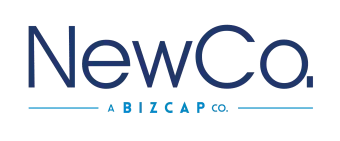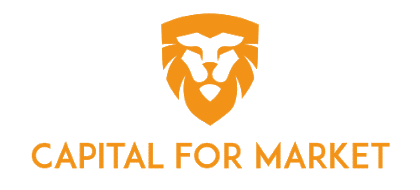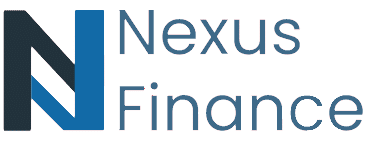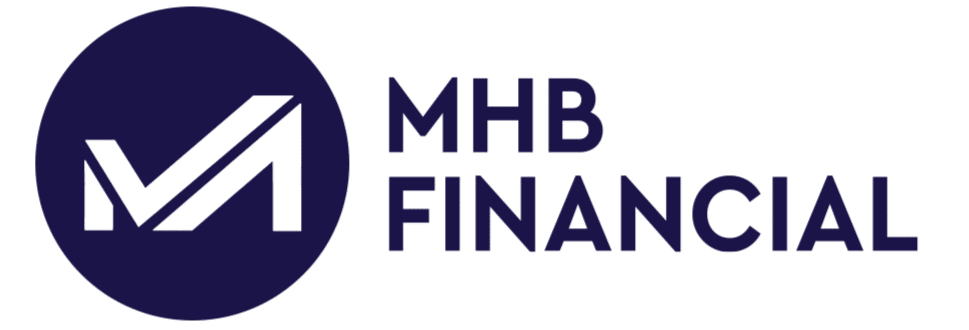Compare Lenders
🏢 Business Loans in Canada
Canadian businesses of all sizes rely on financing to grow, manage cash flow, and seize opportunities. Compare options from vetted lenders and use our tools to estimate payments, check your likely APR range, and find the right fit for your company.
🧮 Business Loan Calculator
Estimate monthly payment, total interest, and payoff. Tap a preset or adjust the inputs. Press Calculate to see results. Use the calculator to test payment scenarios and choose a term that fits your cash flow. Shorter terms raise payments but reduce total interest; longer terms lower payments but increase total interest. Results are estimates—actual pricing depends on lender underwriting and market conditions.
⭐ Quick Presets
Tap a tile to auto-fill a typical borrow amount for that scenario. You can still edit APR, term, and frequency after.
The total you plan to borrow before fees. Borrow only what you need.
APR is your yearly borrowing cost including interest. Comparing APRs shows the true cost.
Shorter terms raise payments but reduce interest. Longer terms do the opposite.
Biweekly or weekly spreads payments out. Total cost shown below.
📊 Results
Monthly Payment
Total Interest
Total of Payments
Payoff Date
📄 Show full breakdown
| Metric | Value |
|---|
💲 Business Loan Rates and Fees
Business loan APRs in Canada can range from single digits for strong profiles to higher rates for riskier scenarios. Banks often offer 6 to 10 percent for highly qualified borrowers. Alternative lenders price higher but move faster and approve more file types. MCAs and short term products typically cost more.
📃 Common fees
- Origination or administration fee
- Late payment fee
- NSF fee
- Prepayment charge where applicable
Compare the APR, not just the nominal rate.
🧪 Example scenario
| Amount | $50,000 |
| APR | 9.99% |
| Term | 36 months |
| Estimated payment | Use the calculator |
📊 What Affects Your Rate
📇 Credit & history
Higher scores and clean payment records reduce risk.
💵 Revenue & cash flow
Stable, growing revenues support larger, cheaper loans.
⏳ Time in business
More years in operation improves approval odds and pricing.
🔒 Collateral
Assets can lower rates and increase approval odds.
🏭 Industry risk
Volatile sectors often see higher pricing.
🧮 Loan type & term
Shorter terms reduce interest; longer terms lower payment.
✅ Approval & Interest Rate Checker
Enter the key signals lenders review to see an illustrative APR range and eligible financing types. Educational only, not a credit decision.
Higher scores generally qualify for lower APRs.
Revenue level helps determine affordability and loan size.
Longer operating history usually improves approval odds.
Includes loan payments, leases, and fixed obligations.
📈 Estimated APR Range & Eligible Types
Low End
High End
Fit Score
Eligible Types
📄 Show how we estimated this
| Factor | Effect |
|---|
Heuristics only. Real APRs depend on lender underwriting and market conditions.
🧰 Types of Business Financing
🏦 Term loans
Fixed amount, fixed schedule (great for expansions, renovations, acquisitions). Predictable payments help with planning.
🔁 Business line of credit
Revolving credit for working capital. Pay interest only on what you draw; review annually.
🛠️ Equipment financing
Asset-secured loans or leases for vehicles, machinery, technology. Often faster because the equipment serves as collateral.
🧾 Invoice financing
Advance on accounts receivable. Useful for B2B businesses with long payment cycles.
⚡ Short term loans
Fast funding for inventory, seasonal spikes, or bridging gaps; higher cost, shorter horizon.
💳 Merchant cash advance
Advance repaid via a % of daily card sales. Very fast access; cost is typically higher due to variability and risk.
✨ Get matched to business lenders in minutes
Answer a few questions and see options from vetted Canadian providers.
Start Matching🎯 Common Uses
📦 Inventory & supplies
Retailers stock up for peak season; restaurants buy bulk at better pricing.
👥 Working capital & payroll
Cover receivables gaps; smooth seasonal slowdowns.
🛠️ Equipment
Manufacturers, trades, logistics, and clinics upgrade critical gear to boost productivity.
📣 Marketing
Fund ads, e-commerce builds, or new product launches that drive customer growth.
🏪 Renovations
Build-outs, second locations, or production capacity.
🚑 Emergencies
Unexpected repairs, supply shocks, or one-off opportunities.
✅ Eligibility Criteria
🧾 Minimums most lenders expect
- 6 months in business
- $10,000 monthly revenue
- Fair to good credit
- Consistent cash flow
📑 Documents to prepare
- Business registration or incorporation
- Financial statements or tax returns
- Bank statements
- Plan for how the funds will be used
💡 Tip
Even if you miss a requirement, alternative and online lenders often provide options for newer businesses or those with weaker credit.
📍 Where to Get Business Loans
🏦 Banks & credit unions
Competitive rates and larger amounts, but stricter eligibility and longer timelines.
🌐 Online lenders & marketplaces
Fast approvals and higher approval odds. Compare multiple lenders in one place.
🤝 Private lenders
Flexible but rates and terms vary widely. Due diligence is essential.
🏛️ Government programs
Canada Small Business Financing Program and provincial initiatives may help secure bank financing.
Regional notes: Ontario and BC have the highest concentration of alternative lenders. Alberta and Saskatchewan often emphasize equipment and energy-related financing. Quebec offers unique provincial programs alongside private lenders.
🧭 Compare Business Financing Types
| Type | Typical APR | Typical Amount | Term / Repayment | Speed | Pros | Cons | Best For |
|---|---|---|---|---|---|---|---|
| 🏦 Business term loan | ~6% to 20%+ | $10k to $500k+ | 12 to 60 mo, fixed | Days to weeks | Predictable, larger amounts | Stricter underwriting | Expansion, projects |
| 🔁 Business line of credit | Prime + margin | Flexible | Revolving, interest on draws | Days to weeks | Pay as you use | Variable cost; reviews | Working capital gaps |
| 🛠️ Equipment financing | Often lower | $10k to $1M+ | 12 to 84 mo, fixed | Fast to moderate | Asset secured | Asset at risk | Machinery, vehicles |
| 🧾 Invoice financing | Fee based | Up to AR value | Advance on receivables | Fast | Unlocks cash quickly | Fees reduce margin | AR heavy businesses |
| 💳 Merchant cash advance | High (factor) | $5k to $300k | % of sales, variable | Very fast | Approval flexibility | High cost | Short urgent needs |
Tip: Compare total cost and choose the shortest affordable term.
📝 How to Get a Business Loan
- Prepare documents: registration, financials, bank statements, and a clear use-of-funds plan.
- Estimate affordability: use the calculator to test payment scenarios.
- Check likely APR range: run the Approval & Rate Checker to see a preliminary range.
- Compare lenders: banks, credit unions, alternative and online lenders.
- Apply online: complete a secure application and upload documents.
- Review approval: confirm schedule, fees, and prepayment options.
❓ Frequently Asked Questions
How much can I borrow?
Amounts typically range from $5,000 up to $500,000 or more, depending on revenue, time in business, credit, collateral, and loan type.
What is a good business loan rate in Canada?
Strong profiles may see 6 to 10 percent with banks. Alternative lenders often price 10 to 29 percent depending on risk. Short-term products can be higher.
How fast can I get funded?
Online lenders can fund in 24 to 48 hours. Traditional institutions may take longer but can offer lower rates.
Will I need collateral?
Not always. Secured options can lower cost. Unsecured loans rely more on credit, revenue, and cash flow.
Do newer businesses qualify?
Yes, many alternative lenders serve newer businesses, typically with higher pricing or smaller amounts.
🚀 Ready to compare business loans
See options from vetted Canadian lenders and apply online in minutes.
Start your applicationDisclosure Smarter Loans is not a lender. Tools provide estimates only and are not credit offers. Terms, eligibility, and pricing vary by lender and province.
Explore more
Similar products
- bad credit business loans
- coffee shop business loans
- expansion business loans
- food grocery store business loans
- home business loans
- invoice factoring
- medical dental practice business loans
- mid market financing
- point of sale financing
- restaurant business loans
- salon spa business loans
- business credit lines
- business loan application keep
- clothing store business loans
- auto shop business loans
- business loans usa
- emergency business loans
- gym fitness club business loans
- inventory business loans
- marketing business loans
- merchant cash advance business loans
- ecommerce business loans
- renovation business loans
- retail store business loans
- working capital loans
Why Choose Smarter Loans?

Access to Over 50 Lenders in One Place

Transparency in Rates & Terms

100% Free to Use

Apply Once & Get Multiple Offers

Save Time & Money

Expert Tips and Advice




























